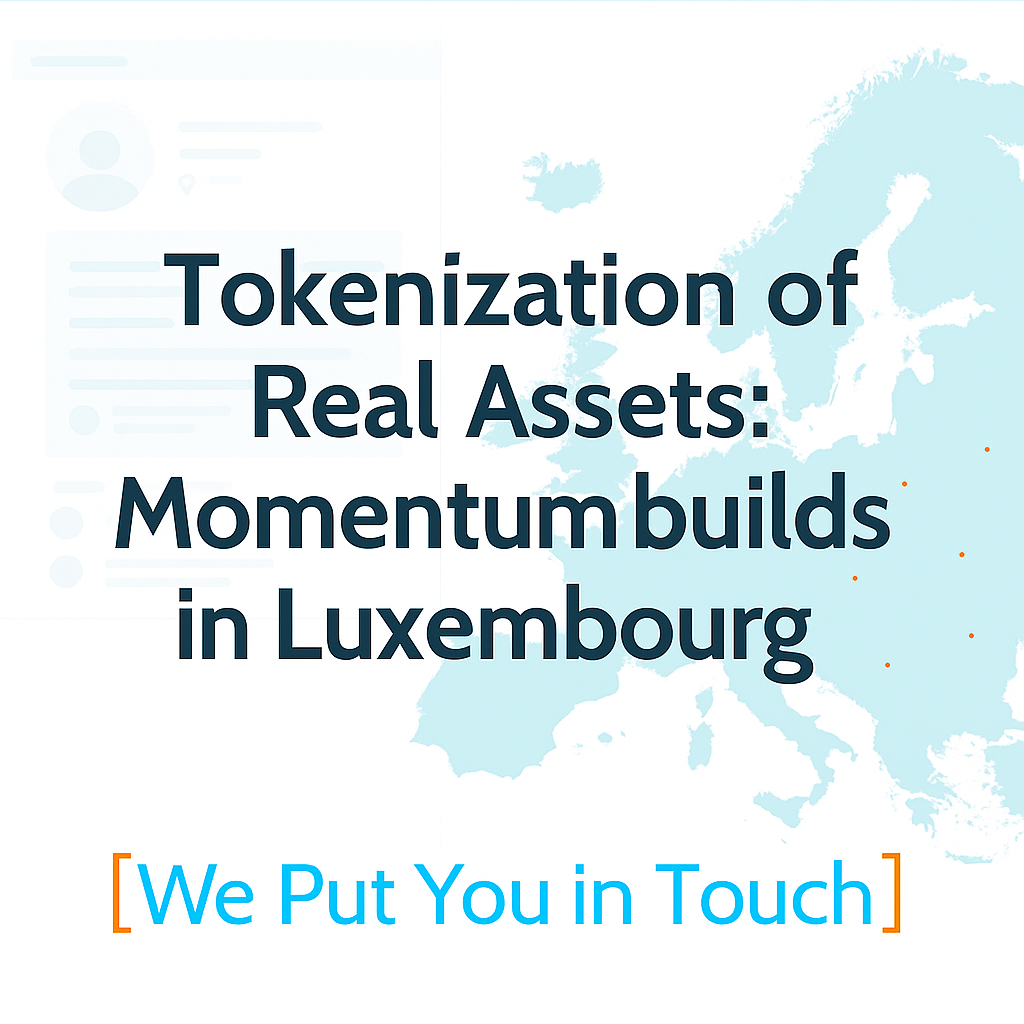
From Vision to Velocity
Across Europe, tokenization is no longer a speculative buzzword—it’s becoming a concrete financial strategy. By turning physical assets like real estate, infrastructure, or fine art into blockchain-based tokens, institutions aim to unlock new efficiencies, improve liquidity, and broaden investor access. Luxembourg, already a trusted hub for cross-border fund administration and securitization, is emerging as one of the continent’s most credible jurisdictions to scale this innovation.
The convergence of legal certainty, regulatory frameworks, and market infrastructure is positioning the Grand Duchy as a natural home for institutional-grade tokenization.
A Regulatory Framework That Enables, Not Inhibits
Much of this momentum has been catalyzed by regulation. The EU’s Markets in Crypto-Assets Regulation (MiCA) now provides a comprehensive foundation for digital assets, while Luxembourg’s Blockchain Law IV—adopted in December 2024—has clarified the conditions under which securities can be issued and transferred on distributed ledger technologies.
This legal clarity has shifted the perception of tokenization: it is no longer viewed as experimental but rather as a viable layer of future financial infrastructure. The CSSF has also signalled openness to innovation, particularly in areas where digital assets are linked to traditional structures like alternative investment funds (AIFs) or securitisation vehicles.
Beyond Theory: Luxembourg Use Cases Emerge
Several players are already laying the groundwork. BlockSquare, a firm developing real-estate tokenization frameworks, has chosen Luxembourg to anchor its European compliance strategy. By integrating notarized property registries and smart contracts, they aim to deliver legally enforceable investor rights.
Another leader in the space, Tokeny, has long been associated with Luxembourg. Its ERC‑3643-based issuance infrastructure has powered multiple asset tokenization projects, from real estate to private equity. Their model offers full compliance workflows, smart contract lifecycle management, and transfer restrictions—tailored to institutional needs.
Meanwhile, FundsDLT, operating with strong ties to Luxembourg’s fund industry, is facilitating tokenized fund distribution in collaboration with major financial institutions. Euroclear and Clearstream are also running parallel pilots, seeking to integrate tokenized assets into post-trade and custody infrastructures, including the settlement of gold and sovereign bonds on permissioned blockchains.
Apex Acquisition Signals Market Maturity
One of the clearest signs that tokenization is entering a new phase came in May 2025, when Apex Group announced the acquisition of a majority stake in Tokeny. For Apex—a global provider of fund administration and financial services—this move reflects a strategic bet on the convergence of traditional and digital finance.
Rather than creating a separate “innovation lab,” Apex is embedding token issuance capabilities directly into its core service offerings. This sends a strong message to the market: tokenization is no longer a niche—it’s becoming part of mainstream financial plumbing.
But Challenges Persist
Despite the headlines, market-wide adoption remains uneven. Valuation models for tokenized assets remain fragmented, especially for unique, illiquid holdings like art or infrastructure. Investors are also rightly cautious: until secondary markets mature, liquidity remains theoretical. Onboarding and compliance also require work. Many tokenization platforms struggle to deliver seamless client experiences that satisfy Luxembourg’s stringent AML and KYC expectations. Legacy IT systems in custody, transfer agency, and fund accounting often resist integration with blockchain-native protocols—leading to parallel systems rather than streamlined automation.
Perhaps the most critical gap is ecosystem governance. Without common standards or a shared supervisory framework, tokenization efforts often remain siloed, duplicating effort and limiting scale.
A Call for Coordination
For Luxembourg to consolidate its role as Europe’s tokenization leader, several ingredients are needed. Industry participants must agree on interoperability standards that allow platforms, custodians, and registries to “talk” to each other. Regulators must clarify how tokenized instruments fit into the fund and banking regulatory perimeter. Institutions will need to create frameworks for token trading, liquidity windows, and co-managed digital custodianship. Above all, a shared infrastructure vision—perhaps coordinated through an industry body or neutral public-private platform—could serve as a backbone for wider adoption.
Expertise Will Make the Difference
Making tokenization work is not just a technology problem—it’s a multi-disciplinary challenge that spans law, compliance, infrastructure, and change management. This is where agile, project-based talent plays a crucial role. More institutions are turning to flexible models to secure the right expertise for token initiatives without committing to permanent teams. At We Put You in Touch, our consultants have already supported fund managers, tech providers, and service firms tackling digital asset innovation. Explore our capabilities.
Conclusion
Tokenization has moved from experimentation to execution. And in this transition, Luxembourg has a unique window of opportunity. With the right governance, market alignment, and talent, the country could anchor the European token economy.
But realizing that promise will require coordination, investment, and a mindset shift—from technical experimentation to infrastructure building. Those who lead this transition now will shape the standards of tomorrow.
References
- EY Luxembourg: “Real Estate Tokenization in Europe”
- Tokeny: “Apex Group Acquires Majority Stake in Tokeny”
- Goodwin Law: “Luxembourg Blockchain Law IV Explained”
- FundsDLT & Clearstream: DLT Fund Distribution Pilots
- Cointelegraph & Ledger Insights: Institutional Tokenization Initiatives in Europe
